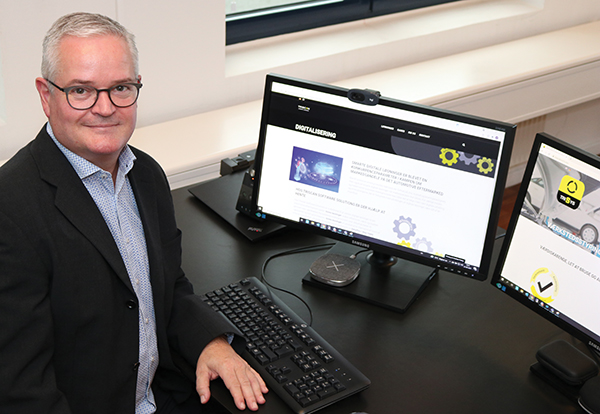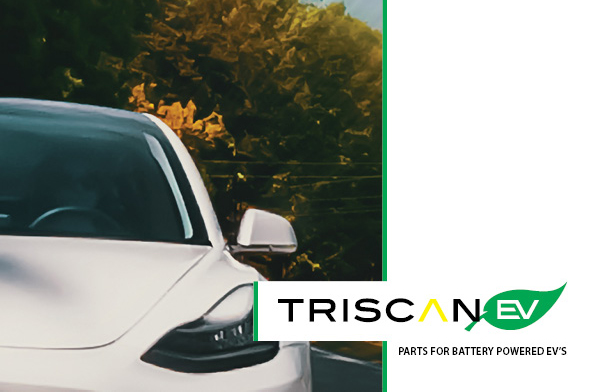With satisfactory accounts for 2020 - and that despite the challenges and necessary adjustments the global Corona pandemic has brought with it - we, like most business companies, have been excited about what 2021 would bring. Now that more than half of the year has already passed, we are pleased to be able to record a very positive revenue development. But the Corona pandemic, which is still haunting, presents many challenges in everyday life, which unfortunately also affect our customers.
The upsides and the near future
At Triscan, we are optimistic about the future and more growth awaits in the short term. This applies to both spare parts and digital services business - our cloud-based workshop management system TRISYS. The positive revenue development is driven in particular by the international markets. Michael Juul Hansen, CEO:
“80 percent of our revenue comes from our activities outside Denmark. Our largest market is Germany, which accounts for almost 40 percent of revenue. Then comes Denmark, closely followed by Sweden, Finland, Poland, Norway, Lithuania, France, Romania, Austria, Kosovo, the Netherlands and Croatia. We have customers in more than 40 countries”.
“As a spare parts supplier, we are known in the market as a specialized player whose primary turnover is not hindered by mainstream products such as oil filters, brake discs and pads. We have the products in our comprehensive program, but it is within the slightly more complex product groups for the undercarriage, driveline and sensors that we create the vast majority of our revenue. We will continue to play that role because it is very value-creating for our customers”.
“In the short term, the growth also comes from our subsidiary Triscan Software Solutions, where we develop business-specific digital solutions - including TRISYS. For wholesalers who do not already have a system to offer their workshop customers or for wholesalers who are considering replacing their existing system, TRISYS is worth looking at. Wholesalers in Denmark and especially abroad have chosen to do so - and here we also expect continued growth”.

Being able to offer industry-specific digital solutions is one of the reasons for Triscan's continued progress in an otherwise severe covid-19 pandemic
The future in the long run
In the long run, electrification will become a game changer and increased digitization will continue. Within both areas, there will be room for Triscan. Michael Juul Hansen, CEO:
“It is estimated that 20% of cars in Europe in 2030 will be electric cars. Although there is less to repair and maintain on electric cars, spare parts are still needed. That is why we have already in 2019 embarked on the development of parts for the electric cars for the IAM and had as some of the first spare parts ready for Tesla. We collaborate with players in Denmark, England and Norway, from where we get in-depth knowledge of what parts to prioritize and focus on”.
“Today, we already have around 4,500 spare parts for electric, hydrogen and hybrid car models. Although the demand is rather modest it is an investment in the future and a way to ensure wholesalers on the independent aftermarket access to the parts for EV’s. We were the first in our segment to do so, and now some of our competitors are starting to introduce EV-programs as well. But I dare say that not many of our competitors spend as much money on product development as we do”.
“Digitalisation in the industry has gone really fast in recent years and we believe that it will continue.
It is an exciting challenge to face and with new products in the pipeline of Triscan Software Solutions, here too, we continue to create a place for ourselves in the future”.

Since 2019, Triscan has developed spare parts for both electric, hydrogen and hybrid models and was among the first to be able to offer parts for Tesla
The challenges here and now
The Corona pandemic has had a great global impact. The spare parts market is especially challenged by material scarcity / prices and security of supply / transport prices. Michael Juul Hansen, CEO:
"Unfortunately, we can no longer live up to our goal of 97% order fill. Although we have disposed optimistically, we see with approx. 20% revenue growth large fluctuations within the various product programs, and this unfortunately affects our customers. The delivery dates that we have been promised rarely hold true because the conditions for freight transport have become unpredictable. Container transport is sold to the highest bidder in a market where list prices have more than quadrupled compared to before the Corona pandemic and where there is a shortage of resources”.
“But material scarcity in both metal and semiconductors is also a challenge. As in the area of transport, the situation has led to unpredictability and massive price increases”.
"It is difficult to say anything about when conditions will return to normal. Our delivery capacity is now at 93-94% and we are experiencing greater predictability and stability in the supply chain. At the same time, we naturally continue to do our best to minimize the consequences it inevitably has for our customers”.








